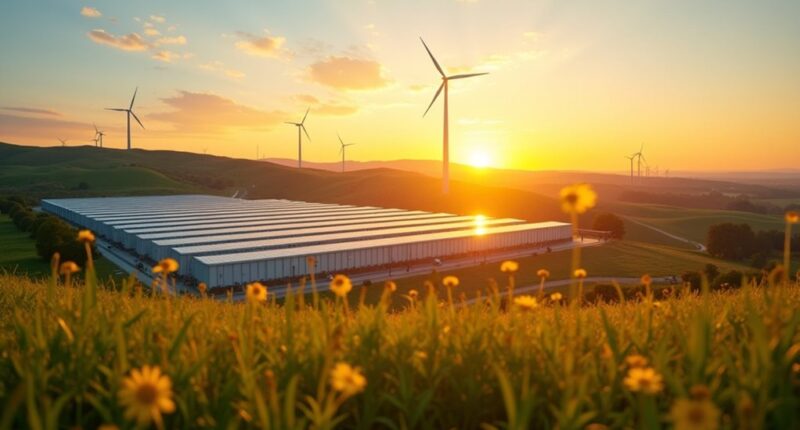In a world increasingly powered by renewable energy, Powin’s battery solutions stand out like a lighthouse in a storm, guiding the way toward a cleaner future. With their innovative lithium iron phosphate (LFP) cell technology, Powin is not just keeping pace; they are forging ahead, making strides in energy storage that could change the game for grid-scale applications.
The Centipede™ Stack800 battery energy storage system is a marvel, boasting a 50% increase in energy density compared to its predecessors. Imagine packing more energy into a space that used to feel like a crowded subway car during rush hour. This system is engineered for long-duration applications, providing continuous discharge for up to 10-12 hours. That’s like having a trusty friend who can keep the lights on during a power outage from an unexpected storm. Furthermore, Powin’s fully integrated utility-scale battery energy storage systems enhance overall performance and safety.
Powin’s technology has profound implications for grid stability, especially in markets like ERCOT. By facilitating energy arbitrage and ancillary grid services, it helps integrate renewable sources like solar and wind into existing grids. This is essential for meeting energy demands, especially in areas prone to extreme weather and wildfires. Their solutions represent a crucial step in the global energy transition away from fossil fuels toward cleaner alternatives. Powin’s deployments—over 17 GWh and counting—are a demonstration of their impact, from West Virginia to Scotland. Additionally, Powin collaborates with power companies worldwide, further enhancing their ability to provide effective energy solutions.
Powin’s technology enhances grid stability, seamlessly integrating renewables and meeting energy demands in challenging environments.
But it’s not all about energy; the economic benefits are equally compelling. By creating jobs and generating significant tax revenue, Powin is revitalizing regions, particularly in West Virginia. With approximately 100 jobs formed during construction phases, they’re not just building batteries; they are building futures.
Environmentally, Powin’s solutions reduce carbon emissions and reliance on fossil fuels, supporting ambitious targets like the UK’s goal for net zero by 2035. By repurposing decommissioned coal plant sites for battery storage, Powin is proving that old can become new again—like turning your grandma’s attic into a chic apartment.
In short, Powin’s battery solutions are not just about clean energy; they are about powering a sustainable future, one charged cell at a time.









